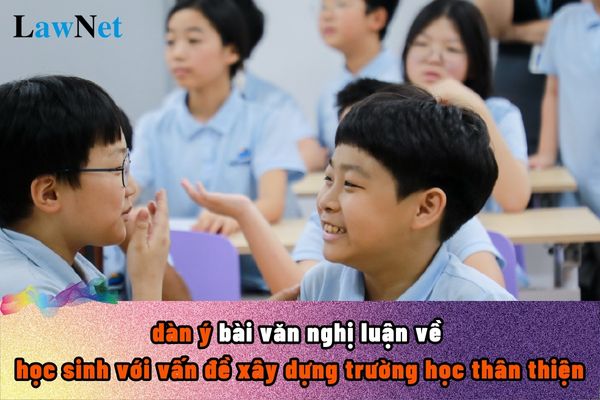Vietnam: What are the sample argumentative paragraphs on the students' responsibility towards their homeland and country under the 10th-grade Literature curriculum?
What are the sample argumentative paragraphs on the students' responsibility towards their homeland and country under the 10th-grade Literature curriculum in Vietnam?
Students can refer to the following sample argumentative paragraphs on the students' responsibility towards their homeland and country under the 10th-grade Literature curriculum in Vietnam:
|
Argumentative paragraphs on the students' responsibility towards their homeland and country
|
Note: The above sample argumentative paragraphs on the students' responsibility towards their homeland and country are for reference purposes only!

What are the sample argumentative paragraphs on the students' responsibility towards their homeland and country under the 10th-grade Literature curriculum in Vietnam? (Image from Internet)
What is the basis for assessment of training results of 10th-grade students in Vietnam?
According to point a, clause 1, Article 8 of Circular 22/2021/TT-BGDDTon assessment of training results of students in Vietnam:
Assessment of training results of students
1. Basis and organization of assessing learning results of students
a) Assess training results of students based on requirements for traits and general capacity by subjects and education level under general programs and requirements for specific capacity under subject program in formal education program.
b) Subject teachers shall rely on Point a of this Clause to provide feedback and assess training results, improvement, advantages, and disadvantages of students during training and learning process of the subjects.
...
Under the above regulation, the assessment of training results of 10th-grade students in Vietnam will be conducted based on requirements for traits and general capacity by subjects and education level under general programs and requirements for specific capacity under subject program in formal education program.
When are 10th-grade students in Vietnam required to undergo training during summer break?
Under clause 1, Article 13 of Circular 22/2021/TT-BGDDT, the regulation on training during summer break is as follows:
Training during summer break
1. A student with Unqualified training results for the whole school year must undergo training during summer break.
2. Forms of training during summer break shall be decided by principals.
3. Based on forms of training during summer break, class advisors shall assign summer training tasks to students and inform students’ parents. At the end of the summer, if training tasks are considered completed by class advisors (reports on training progress and results must be produced and bear signatures of students' parents), class advisors shall request principals to conduct re-assessment of training results of the entire school year of students. Re-assessment results shall be used in place of training results of the entire school year which are used for considering grade advancement under Article 12 hereof.
According to the above regulation, 10th-grade students with Unqualified training results for the whole school year must undergo training during summer break.










- Vietnam: What is the sample report on a modern literary matter - innovations and renovations in the short stories "Chiếc thuyền ngoài xa" and "Một người Hà Nội"?
- Vietnam: What are the 05 sample 600-word argumentative essays on negative issues among youth today? How many types of texts are there in the content of the 12th-grade Literature curriculum?
- Vietnam: What are the best sample paragraphs about your family for 6th-grade students? What elective subjects do 6th-grade students learn?
- Vietnam: What are the best sample self-introductions in English for 5th-grade students? What topics are covered by the 5th-grade English curriculum?
- Vietnam: What are the sample imaginary paragraphs on Tin-tin and Mi-tin entering the magical garden for 4th-grade students? What are the 05 essential qualities required for 4th-grade students?
- Vietnam: What are the guidelines for preparing the briefest lesson "A Strange Tale of the Fisherman's House/Truyện lạ nhà thuyền chài"? What is the eligibility for lower secondary graduation recognition for 9th-grade students?
- What are the enrollment methods of Pham Ngoc Thach University of Medicine in 2025?
- Vietnam: What are the sample 1st end-of-semester question papers of 9th-grade Literature? What is the form of assessment for 9th-grade Literature?
- Vietnam: What are the 10 sample 200-word social argumentative paragraphs on the strength of discipline? Is improving manpower one of the goals of education?
- What are the sample social argumentative essays on a social issue raised from a literary work in the 8th-grade Literature curriculum in Vietnam?

